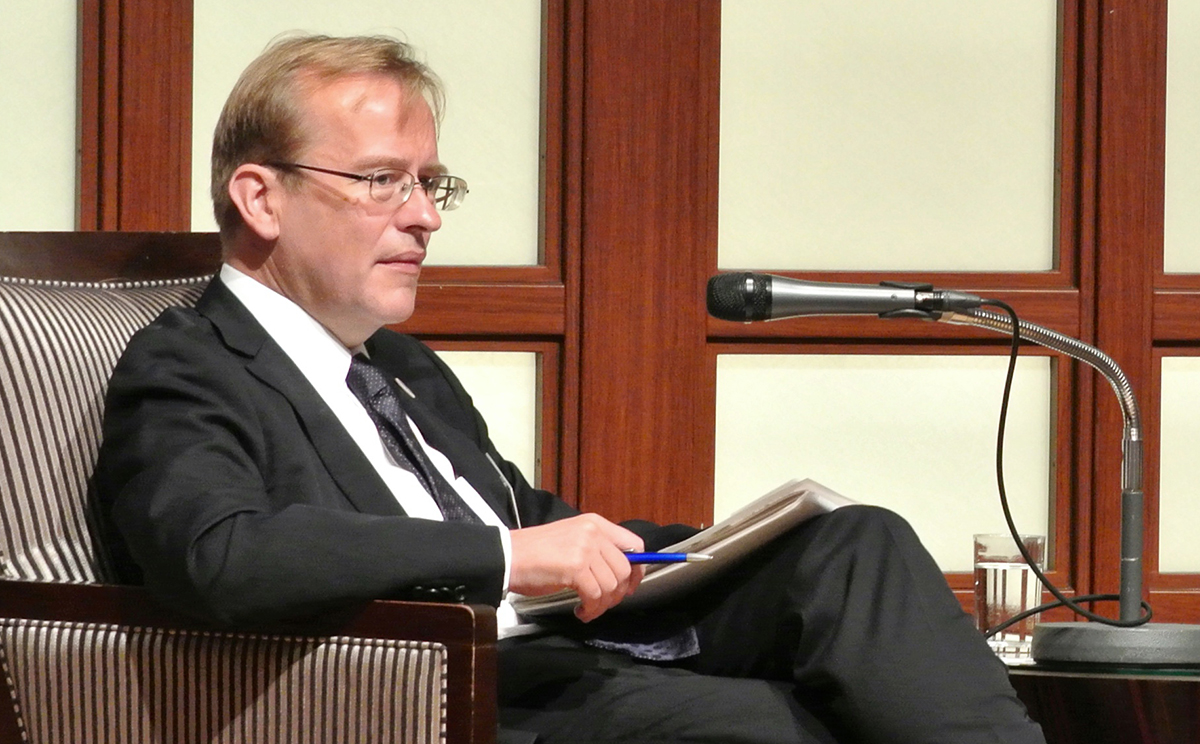Tell us about your background.
I am originally from Haddenham in Buckinghamshire. I grew up there and went to school in the village, and then to Aylesbury Grammar School. My favourite subject was German, although at university I studied philosophy, politics and economics at Oxford—a degree which gets a lot of flak now, but I enjoyed it.
I worked in the City after university and was lucky enough to get the chance to work in Frankfurt, Germany, for several years before the bank sent me to Tokyo. I eventually decided to leave banking and spent a very enjoyable year at the University of Sheffield studying Japanese before coming back to Japan and joining the Economist Group, where I stayed for 13 years.
During this time, my wife was running a restaurant in Takanawa. Now, somehow, we’ve ended up in Yakushima running a guest house and restaurant.
So it feels like a long way from Haddenham and a bit of an unplanned career path, but what a great place it is to be.

And your history with Japan?
I met my wife, who is Japanese, in Frankfurt, where she was working. That was really my first contact with Japan. I guess it all comes back to me learning German at school. I wish I spoke better Japanese. But over the years I have seen so much of Japan and met so many interesting people, from Cabinet ministers and the people who run the country in Tokyo to those living in the more rural environment in which I find myself down here in Yakushima, which now feels like home.
What UK–Japan ties stand out most?
My wife and I now run our own business, and I keep meeting British people here who have left the corporate world and gone out and done their own thing. Japan seems to offer something to people who want to pursue the corporate career path, as I did, and then to go off and do something completely different, as I am now doing. It always amazes me just how big and varied Japan is. I think the UK offers the same range of opportunities, and I like to meet Japanese people who have made their lives in the UK and contributed to British life, too.
What could be the best post-Brexit opportunities for the BCCJ and UK firms here?
I think Brexit is just one of the issues that business has to deal with. For many of us, it won’t affect what we do here in Japan, because we are effectively local businesses dealing with local customers. There’ll be areas of regulation and import/export processes and tariffs which create or impede business opportunities, but even if new business areas open up, business managers will have to deal with all of the normal business challenges here—demanding customers, complicated supply chains, intense competition and everything else which makes life difficult—and those won’t be affected by Brexit.
How could Covid-19 impact UK–Japan business ties?
The biggest immediate challenge is freedom of movement. Until quarantine regulations are relaxed at both ends, we are stuck. With both countries moving to some relaxation of Covid-19-related measures—but nobody yet able to go back to where we were before—everyone is going to have to work around Covid-19.
We run a guest house and restaurant here, and we’ve had to shut our accommodation and move to a take-out service model for the restaurant. Actually, that has been very popular with local people, I’m pleased to say. For us, even with a relaxation of restrictions, we are going to be cautious in reopening the restaurant and guest house, so it may take a few months before we go back to business as usual. That might be a common theme in travel and tourism, with both suppliers and customers moving cautiously.
What is your BCCJ focus?
I came back to the chamber right at the beginning of the Covid-19 crisis, and that has dominated the last few months for us, as it has for everyone. I really hope that the chamber has been able to offer a useful service for our members during this period.
We’ve tried all sorts of things—webinars, the information centre, and even the pub quiz—to try to be there as an active part of the community. There’s always more we could do, and just as we try to support our members, we are so grateful for the help and contributions we’ve received from members. I’m hoping we’re going to be in a good position to grow as things slowly get back to normal and, hopefully, we can draw on some of the things we’ve done during the crisis, such as webinars, to keep the chamber growing with our members. Please keep your ideas coming!

